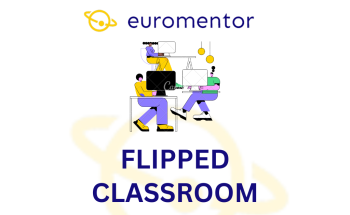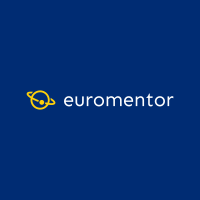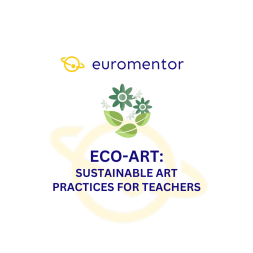
Eco-Art: Sustainable Art Practices for Teachers (Barcelona, Spain)
Eco-Art is a form of artistic expression that aligns with ecological principles and aims to promote a deeper understanding of environmental issues. It involves creating artworks and engaging in artistic practices that are environmentally conscious, making use of sustainable materials and techniques to minimise ecological impact.
Description
- Eco-Art: Sustainable Art Practices for Teachers is a comprehensive and engaging course designed to equip educators with the necessary knowledge and skills to integrate eco-art and green art practices into their teaching methodologies.
- In educational settings, eco-art serves as a powerful tool to raise awareness about environmental sustainability among students. It encourages students to explore the relationship between art and the environment, fostering a sense of environmental responsibility and stewardship. By incorporating eco-art into the curriculum, teachers can provide students with hands-on experiences that connect artistic creativity with sustainable practices, inspiring them to take positive action to protect the planet.
- By using sustainable resources, such as recycled materials, natural pigments, and biodegradable elements, eco-artists and educators can demonstrate the importance of responsible consumption and waste reduction.
Learning objectives
- Understanding Eco-Art Concepts: Participants will gain a comprehensive understanding of eco-art and its significance within the context of environmental sustainability
- Integrating Sustainable Resources: Teachers will learn to identify and utilise sustainable resources and materials in art projects and activities.
- Applying Green Art Techniques: Participants will acquire practical knowledge of various green art techniques, including up-cycling, compost art, and nature-inspired installations
- Promoting Environmental Awareness: The course will equip educators with strategies to effectively communicate environmental messages through art.
- Nurturing Creativity and Innovation: The course will emphasise the role of eco-art in stimulating creativity and innovative thinking.
- Building Environmental Stewardship: Educators will learn how to motivate learners to become proactive agents of change, inspiring them to take action for a greener and more sustainable future.
Methodology & assessment
Interactive Workshops: The course employs a hands-on approach, featuring interactive workshops, group discussions, and collaborative activities.
Peer Learning: Participants engage in peer-to-peer learning, benefiting from the diverse backgrounds and experiences of their fellow educators.
Practical Application: The training emphasises the practical application of concepts learned.
𝐀𝐬𝐬𝐞𝐬𝐬𝐦𝐞𝐧𝐭:
Formative Assessment: Continuous assessment methods are employed throughout the course, including quizzes, group presentations, and reflective journals.
Final Project: Participants are required to develop a final project that incorporates the knowledge and skills gained during the course.
Course Evaluation: At the end of the course, participants are asked to complete an evaluation form, offering insights into the effectiveness of the training program.
Materials, digital tools & other learning resources
Curriculum Frameworks: Guidelines for integrating sustainability concepts and eco-art practices into teaching.
Lesson Plans: Step-by-step guides for creating art projects using recycled materials and teaching environmental awareness.
Activity Guides: Interactive exercises for designing eco-friendly art projects and exploring nature as inspiration.
Assessment Tools: Resources for evaluating creativity, sustainability, and environmental understanding in students' art.
Case Studies: Examples of success
Certification details
Our courses meet 𝐄𝐫𝐚𝐬𝐦𝐮𝐬+ 𝐪𝐮𝐚𝐥𝐢𝐭𝐲 𝐬𝐭𝐚𝐧𝐝𝐚𝐫𝐝𝐬 for Key Action 1 (learning mobility of individuals).
Participants must attend a minimum of 80% of sessions and actively engage in discussions and practical activities to enhance their learning experience.
Upon successful completion, participants will receive a Certificate of Attendance. Learning Agreements and Europass Mobility documents are available upon request at no additional cost.
Pricing, packages and other information
-
Price:400Euro
-
Course package content:
𝐂𝐨𝐮𝐫𝐬𝐞 𝐅𝐞𝐞 𝐈𝐧𝐜𝐥𝐮𝐝𝐞𝐬 (𝐍𝐨 𝐀𝐝𝐝𝐢𝐭𝐢𝐨𝐧𝐚𝐥 𝐨𝐫 𝐇𝐢𝐝𝐝𝐞𝐧 𝐂𝐨𝐬𝐭𝐬)
- Course Materials: Essential handouts, guides, and resources to support learning.
- Administrative Support: Assistance throughout the course for smooth registration and communication.
- Monitoring and Mentoring: Ongoing support from experienced professionals for personalized guidance.
- Coffee Breaks: Refreshments during breaks to facilitate networking and informal discussions.
-
Additional information:Description of the services and activities included in the course package (such as accommodation, meals, transport) or available at extra cost.
-
Cancellation & changes:
As an Erasmus+ course provider, we understand circumstances can change.
𝐅𝐥𝐞𝐱𝐢𝐛𝐥𝐞 𝐑𝐞𝐬𝐜𝐡𝐞𝐝𝐮𝐥𝐢𝐧𝐠:Participants may reschedule or transfer their registration depending on availability.
𝐑𝐞𝐟𝐮𝐧𝐝 𝐏𝐨𝐥𝐢𝐜𝐲:For details regarding the refund policy, please contact us at info@euromentor.es.
𝐎𝐫𝐠𝐚𝐧𝐢𝐬𝐚𝐭𝐢𝐨𝐧𝐚𝐥 𝐑𝐢𝐠𝐡𝐭𝐬:We may transfer participants to an alternative course for organisational reasons.
𝐅𝐨𝐫𝐜𝐞 𝐌𝐚𝐣𝐞𝐮𝐫𝐞:Options available in unforeseen circumstances
-
Additional information:The options and conditions for change and cancellation, and the policy in case of unforeseen circumstances (force majeure).
Additional information
-
Language:English
-
Target audience ISCED:Early childhood education (ISCED 0)Primary education (ISCED 1)Lower secondary education (ISCED 2)
-
Target audience type:TeacherHead Teacher / PrincipalTeacher Educator
-
Learning time:25 hours or more
Upcoming sessions
Past sessions
More courses by this organiser
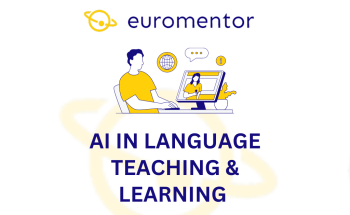
Integrating Artificial Intelligence (AI) into Language Teaching and Learning (Barcelona, Spain)
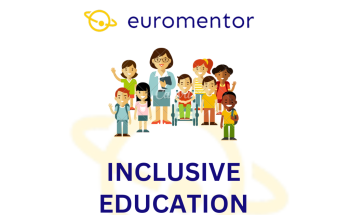
Inclusive Education: All Children Are Special (Barcelona, Spain)
